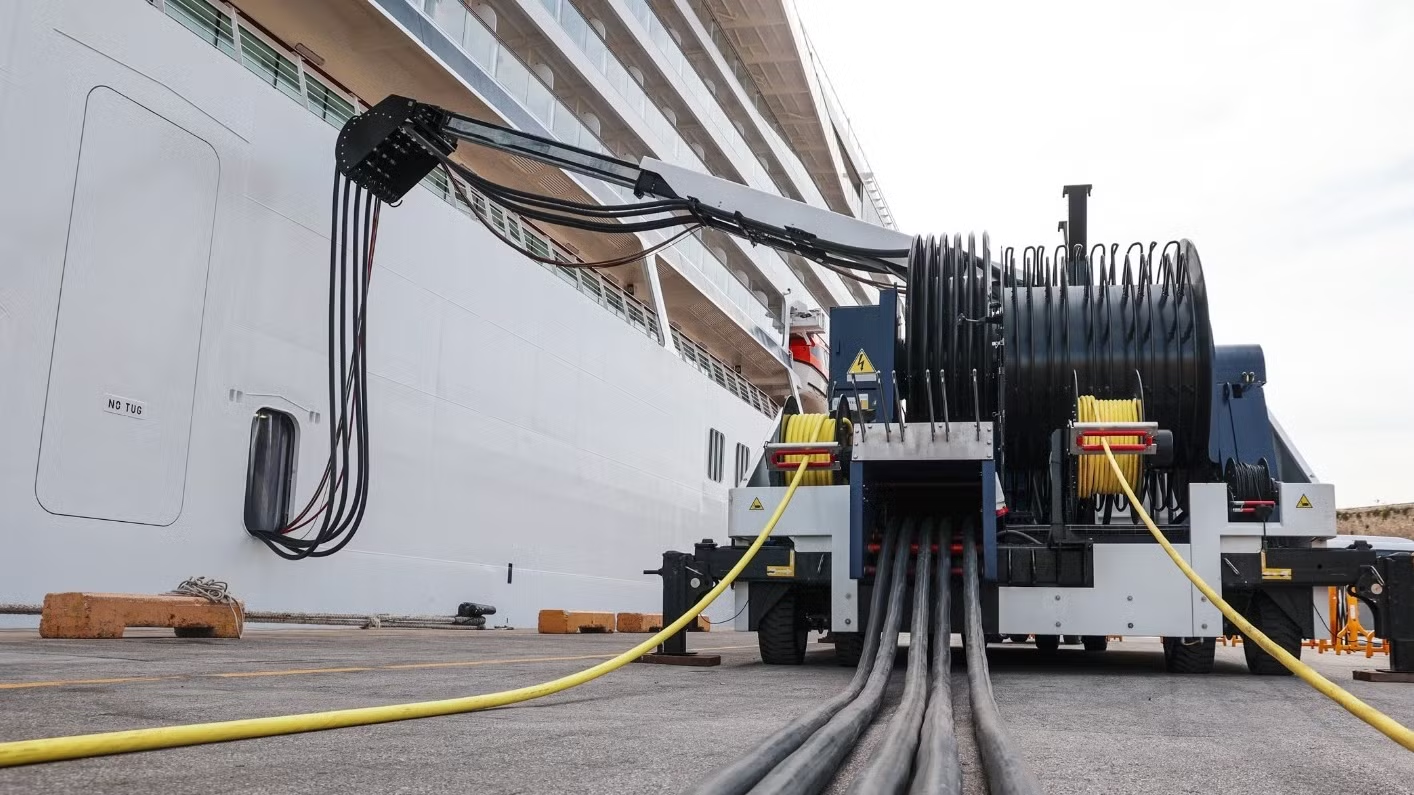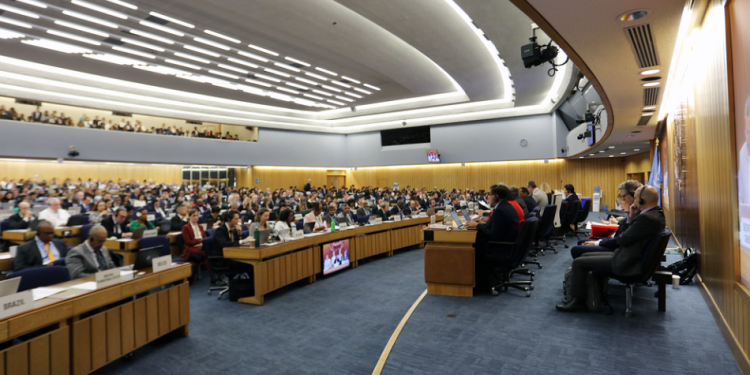The 83rd session IMO Marine Environment Protection Committee (MEPC 83) has approved the draft amendments to MARPOL Annex VI on the IMO net-zero framework.
The decision follows discussions and heated debates that the IMO Member States were engaged in for the past five days (7-11 April 2025). The main theme of the discussions was weather the Organization would adopt a carbon levy. Some nations such as the United Arab Emirates and the United States of America strongly objected to a carbon levy, while small pacific island nations were strongly in favor.
Transport & Environment (T&E) has raised concerns about the new IMO framework, which for the first time is set to generate limited revenues aimed at decarbonising the shipping sector. While the framework includes emission reduction targets and introduces financial tools—such as penalties for non-compliant ships via Remedial Units (RUs) and rewards through Surplus Units (SUs) for ships that exceed targets—T&E argues that these measures fall well short of what is needed to effectively promote clean fuels and support a fair transition. The group also notes that the system includes incentives for zero and near-zero emission fuels.
Guy Platten, Secretary General of the International Chamber of Shipping, expressed satisfaction that governments appear to recognize the importance of supporting investment in zero-emission fuels, noting that this support will be crucial to the success of the IMO agreement. Platten pointed out that the shipping industry is already investing billions in new vessels and green technologies in preparation for the arrival of cleaner fuels. Furthermore, he expressed hope that the agreement would now offer the long-term certainty energy producers need to reduce the risks associated with their significant investment decisions.
We recognise that this may not be the agreement which all sections of the industry would have preferred, and we are concerned that this may not yet go far enough in providing the necessary certainty. But it is a framework which we can build upon.
… said Guy Platten, adding that they will be studying the technical detail over the coming weeks, and will continue to support the IMO process so that we have a system that also works in company boardrooms as well as the governments’ negotiating rooms.
According to T&E, the pricing mechanism has significant design flaws. They claim that nearly 90% of excess emissions will be exempt from carbon penalties, limiting the impact of the system. T&E estimates that the framework could generate around $10 billion per year in revenue through 2035, but they caution that the actual impact will depend heavily on the future establishment and operation of an IMO Net-Zero Fund, which may face delays.

Multilateralism isn’t dead. Despite a tumultuous geopolitical environment, the IMO deal creates a momentum for alternative marine fuels. But unfortunately it is the forest-destroying first generation biofuels that will get the biggest push for the next decade.
… said Faig Abbasov, shipping director at T&E.
T&E also warns that weak sustainability criteria could lead to a surge in the use of cheap, high-risk biofuels such as palm and soybean oil. In their view, this could cause a spike in emissions—potentially adding 270 million tonnes of CO₂ equivalent by 2030—if safeguards aren’t put in place. They argue that without long-term policy certainty and stronger environmental protections, the IMO framework risks undermining its own decarbonisation goals.
Apart from T&E, Seas At Risk also expressed concern noting that only 11-13% of annual shipping emissions are expected to fall under the IMO’s penalty mechanism on excess emissions. The proposed levy, projected to generate around $10 billion/year, falls short of what is needed to either scale up zero to near zero (ZNZ) emission fuels or fund a just and equitable transition (JET), the NGO noted.
This week’s outcome misses even IMO’s baseline – leaving the 2030 decarbonisation target dead in the water, with potential disastrous long-term impacts for people and the planet. The EU may have drifted to the corner of low-ambition, but the absence of bold targets brought bold voices: the emergence of a strong, united voice from African, Caribbean and Pacific nations shows that the global south won’t wait for the north to get their act together
… said Anaïs Rios, Shipping Policy Officer, Seas At Risk.
The IMO Marine Environment Protection Committee approved the draft amendments to MARPOL Annex VI on the IMO net-zero framework with a view to circulation. Further details to follow. pic.twitter.com/rkTOtsxIvq
— International Maritime Organization (@IMOHQ) April 11, 2025



























































